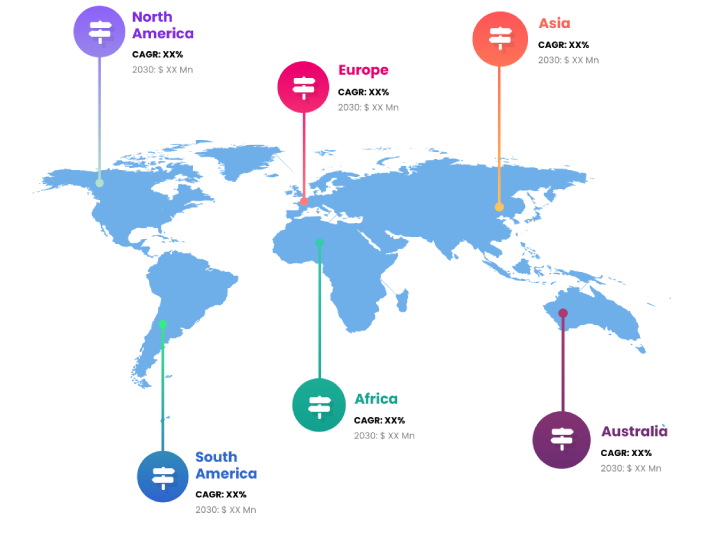Advances in artificial intelligence and sensor technology, as well as a rising need for safer and more efficient transportation options, are fueling the rise in popularity of autonomous vehicles, often known as self-driving cars. There were a number of variables impacting the growth of autonomous vehicle technology in India. Demand for intelligent mobility solutions that can lessen traffic congestion and improve transportation efficiency has surged as major cities like Delhi, Mumbai, and Bangalore continue to urbanise. In addition, the autonomous EV market has been helped by the Indian government's push for electric and sustainable transportation. Key players in India's autonomous vehicle market included established automakers and IT firms as well as innovative newcomers that were investing heavily in R&D. In order to facilitate the development of autonomous vehicles in the country, partnerships between industry stakeholders, academic institutions, and the government were prevalent.

Revenue growth projections and market trends analysis for each autonomous vehicle market category are included in this report's extensive study coverage. The research examines the market for autonomous vehicles, focusing on its growth drivers, prospects, and obstacles. Recent market changes and competitive strategies have been incorporated into the illustration of the competitive landscape in the market, including growth, product launch and development, collaboration, merger, and acquisition. In each subsegment of the Autonomous Vehicle market, the study identifies the top companies and provides profiles and analysis of their core strengths.
Influential Elements
The Indian government has been pushing for the adoption of EVs as a means to reduce the country's carbon footprint and pollution levels. Research and development into autonomous electric vehicles is encouraged since it helps the country achieve its sustainable mobility goals. Opportunities for autonomous vehicles have arisen thanks to the rising popularity of connected services and in-car infotainment systems. Autonomous vehicles can give seamless connectivity possibilities, which is highly desired by consumers looking for integrated systems that improve the driving experience. The government of India has expressed a desire to provide a welcoming setting for driverless vehicles. To ensure the legal and safe operation of autonomous vehicles on Indian roads, policies, laws, and pilot programmes are being devised.
Limiting Circumstances
Many Indian consumers cannot afford to buy an autonomous vehicle right now because of the high price tag associated with the technology required to power them. In addition, it may be expensive to set up the infrastructure needed to accommodate driverless vehicles, such as charging stations for electric autonomous vehicles.
In 2022, the Indian market for autonomous vehicles was led by the semi-autonomous category.
Drive type is used to classify autonomous vehicles in India into two markets: semi-autonomous and completely autonomous. In 2022, the Indian market for autonomous vehicles was led by the semi-autonomous category. The advantages of semi-autonomous vehicles have led to a steady rise in their popularity. These benefits include fewer accidents, less tired drivers, and better gas mileage. Semi-autonomous vehicles are in line with India's sustainable transportation goals, and the government's push to promote electric and connected mobility has increased their popularity.
In 2022, the passenger automobile market accounted for a lion's share of India's autonomous vehicle industry.
Market share for autonomous vehicles in India is split between passenger cars and trucks. In 2022, the passenger car category accounted for the lion's share of India's autonomous vehicle market. At first, automakers and startups put their attention and resources into creating autonomous technology for passenger cars.
Report Coverage
Global Autonomous Vehicle research report categorizes the market for global based on various segments and regions, forecasts revenue growth, and analyzes trends in each submarket. Global Autonomous Vehicle report analyses the key growth drivers, opportunities, and challenges influencing the global market. Recent market developments and Autonomous Vehicle competitive strategies such as expansion, product launch and development, partnership, merger, and acquisition have been included to draw the competitive landscape in the market. The report strategically identifies and profiles the key Autonomous Vehicle market players and analyses their core competencies in each global market sub-segments.
| REPORT ATTRIBUTES | DETAILS |
|---|---|
| Study Period | 2017-2030 |
| Base Year | 2022 |
| Forecast Period | 2022-2030 |
| Historical Period | 2017-2021 |
| Unit | Value (USD Billion) |
| Key Companies Profiled | Tata Motors, Ashok Leyland, Maruti Suzuki India Limited, Hella India Automotive Pvt. Ltd., Mahindra & Mahindra and Others. |
| Segments Covered | • By Product |
| Customization Scope | Free report customization (equivalent to up to 3 analyst working days) with purchase. Addition or alteration to country, regional & segment scope |
Key Points Covered in the Report
- Market Revenue of Autonomous Vehicle Market from 2021 to 2030.
- Market Forecast for Autonomous Vehicle Market from 2021 to 2030.
- Regional Market Share and Revenue from 2021 to 2030.
- Country Market share within region from 2021 to 2030.
- Key Type and Application Revenue and forecast.
- Company Market Share Analysis, Autonomous Vehicle competitive scenario, ranking, and detailed company
profiles. - Market driver, restraints, and detailed COVID-19 impact on Autonomous Vehicle
Market
Competitive Environment:
The research provides an accurate study of the major organisations and companies operating in the global Autonomous Vehicle market, along with a comparative evaluation based on their product portfolios, corporate summaries, geographic reach, business plans, Autonomous Vehicle market shares in specific segments, and SWOT analyses. A detailed analysis of the firms' recent news and developments, such as product development, inventions, joint ventures, partnerships, mergers and acquisitions, strategic alliances, and other activities, is also included in the study. This makes it possible to assess the level of market competition as a whole.
List of Major Market Participants
Tata Motors, Ashok Leyland, Maruti Suzuki India Limited, Hella India Automotive Pvt. Ltd., Mahindra & Mahindra and Others.
Primary Target Market
- Market Players of Autonomous Vehicle
- Investors
- End-users
- Government Authorities
- Consulting And Research Firm
- Venture capitalists
- Third-party knowledge providers
- Value-Added Resellers (VARs)
Market Segment:
This study forecasts global, regional, and country revenue from 2019 to 2030. INFINITIVE DATA EXPERT has segmented the global Autonomous Vehicle market based on the below-mentioned segments:
Global Autonomous Vehicle Market, By Drive Type
Semi-autonomous
Fully Autonomous
Global Autonomous Vehicle market, By Application
Civil
Defense
Transportation & Logistics
Construction
Global Autonomous Vehicle Market, By Component
Hardware,
Software and Services
Global Autonomous Vehicle market, Regional Analysis
- Europe: Germany, Uk, France, Italy, Spain, Russia, Rest of Europe
- The Asia Pacific: China,Japan,India,South Korea,Australia,Rest of Asia Pacific
- South America: Brazil, Argentina, Rest of South America
- Middle East & Africa: UAE, Saudi Arabia, Qatar, South Africa, Rest of Middle East & Africa
You will get in-depth and extensive autonomous vehicle market market research and competitor analysis for your business to help you develop more profound insights into the autonomous vehicle market Market.
Through INFINITIVE Data Expert is a professional Market Research services, I will identify the autonomous vehicle market market size, demand & opportunities, growth rate, and target audience with a comprehensive analysis of your competitors.



